Book Review – Bring Me the Sports Jacket of Arthur Montford: An Adventure Through Scottish Football by Aidan Smith
 Over 46 chapters, journalist Aidan Smith, once a fanatic programme collector, then a dangerous obsessive, who is now under control without a restraining order, takes us through the wonderment of Scottish football in an episodic wandering of the mind which enriches the spirit. As a book it can be dipped in and out of so that you find that which attracts you most – any headline mention of MY team – and that which intrigues you more – anecdotes from a time you remember…
Over 46 chapters, journalist Aidan Smith, once a fanatic programme collector, then a dangerous obsessive, who is now under control without a restraining order, takes us through the wonderment of Scottish football in an episodic wandering of the mind which enriches the spirit. As a book it can be dipped in and out of so that you find that which attracts you most – any headline mention of MY team – and that which intrigues you more – anecdotes from a time you remember…
But this is far more than just a few wee stories flung together because the author is a seven-times winner in the Scottish Press Awards – though nobody says of what, could have been the raffle – but Smith cannot help himself from doing the research – though Davie Robb and the Princess of Monaco is still a startling mystery.
This is where I got particularly hooked on it. I was captured by the breadth, but Smith has also got the depth. This has anecdotes which include recent catch ups and informal interviews with people whose names I recognise as well as reports and stories of names I probably forgot but of whom I am happy to be reminded. It took me from the obscure like how former Ranger (Johannesburg) and Partick Thistle trialist (just the once, but once…) Bill Martin (who wrote the 1970 England World Cup anthem despite being from Govan – he also penned Puppet on a String for the Eurovision) got to the 1974 World Cup courtesy of Rod Stewart to the well-known like Archie Gemmill and that goal… Equally these have the authenticity of recent discussions Smith has had with both Martin and Gemmill: it makes the stories that bit better.
Smith writes with a distinctive flair – that he has not fallen over as his tongue is so embedded in his cheek, he must be lopsided when he walks is miraculous– and with that he manages to retain a lightness of touch throughout. His approach is to take some of the mysteries or weel kent myths and re-examine it to give us something more and so I am reminded of the wait for the results on a Saturday at five to five, which was never crackerjack, how Rick Wakeman ended up at Meadowbank, why some traffic wardens in the central belt asked Dougie Donnelly to move his terms of reference to Alloa, which Rangers (non-South African) player read War and Peace, why 11 Danes ended up in Greenock, how a nine goal fashionista ended up in the States whilst a nine goal embarrassed international goalie ended up acting in Australia, as well as the infamous Gullane Dunes, though I was unaware of their connection to Hearts!
It is a book filled with characters not least the author himself, who impressed with his chat up line which snared him his wife, as well as characters of the game like Haldane Y. Stewart, Tony Green and that man Montford himself. The title is a nod to the fact that of the two stalwarts of Scottish television, Montford always had the air of a bank manager giving you good news – even when it was a 4-0 drubbing. The other stalwart, Archie MacPherson, always seemed on the lookout for a goalmouth stramash or something to tie his hair down with in a wind; he was less authoritative, but equally distinctive.
As a smorgasbord it adds so much, and this makes the read that much better. If you are looking for a serious tome that delves into the reason why VAR should be challenged or how the offside rule has changed over the years, you are looking at the wrong book. But if you fancy an irreverent dribble through the stories of another time, down the wing of a fact that has been kept secret but is well known, watch cheeky keepie-uppies in front of World Cup holders whilst reliving the dream that turned into your own Argentina or the metaphorical goal through the legs of an English keeper – read on MacScruff….
But what I yearn for now is that book about Hibs … shouldn’t take as long as this one did, should it?
Donald C Stewart
(Publisher: Arena Sport. November 2022. Hardcover: 208 pages)
Buy the book here: Bring Me the Sports Jacket
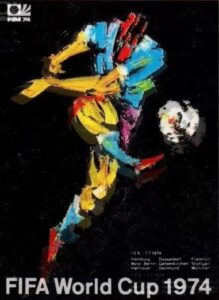 I believe that your relationship with the World Cup can be defined by your very first experience of it. It means that I believe that Europe is dominated by the Dutch and the Germans, the favourites are always the Brazilians who are flawed geniuses and that my own home country, Scotland should always be there and never be beaten but never escape the group stages. 1974, became for me, Muller v Cruyff and I backed the loser.
I believe that your relationship with the World Cup can be defined by your very first experience of it. It means that I believe that Europe is dominated by the Dutch and the Germans, the favourites are always the Brazilians who are flawed geniuses and that my own home country, Scotland should always be there and never be beaten but never escape the group stages. 1974, became for me, Muller v Cruyff and I backed the loser. Europe has suffered some early failures. Germany and Belgium being two of them, but we can also add in everyone’s wee national team – Denmark. Eriksen’s near death experience at the Euros was broadcast across the world and the sympathy brought his nation to our hearts. Unfortunately, it would not bring them to the 2022 knockout phase.
Europe has suffered some early failures. Germany and Belgium being two of them, but we can also add in everyone’s wee national team – Denmark. Eriksen’s near death experience at the Euros was broadcast across the world and the sympathy brought his nation to our hearts. Unfortunately, it would not bring them to the 2022 knockout phase.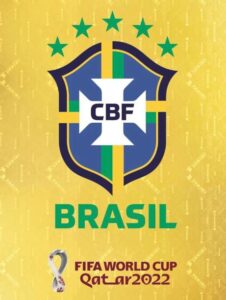 Of those who got out their groups, were damaged in the process but survived? France and Brazil. They got beaten by Tunisia and Cameroon respectively and may feel like they have much still to worry about. France looked vulnerable and whilst Tunisia was perhaps, just getting the French back for having been a French colony which means many of their players could be eligible to play for either country, the French did of course get through the last 16 so the worry was a tad temporary.
Of those who got out their groups, were damaged in the process but survived? France and Brazil. They got beaten by Tunisia and Cameroon respectively and may feel like they have much still to worry about. France looked vulnerable and whilst Tunisia was perhaps, just getting the French back for having been a French colony which means many of their players could be eligible to play for either country, the French did of course get through the last 16 so the worry was a tad temporary. And so, what of England? There were a few people who hoped that their sterling work in the Nations League with their form in that competition would transfer into this tournament… Aside from one game, Southgate’s Surrogates have got through. The second half against Wales was ruthless. You would have thought they could have come together with mates and agreed two goals a start and jumpers as goal posts to allow the other home country to progress but no, not even for mates… It makes expectation for a team which was last to falter at a major competition at the very last game, rise to the point of near fervour. I feel for them. They went on to face a team who managed what they could not – to win their continental championship – Senegal. To be fair Senegal managed to get through a group which included the Dutch who are always a hit or miss, the Qataris, and the one team that ought to have got through – Ecuador. They could be called lucky rather than plucky, but their luck ran out. Meanwhile, England’s failure to beat a team who cannot even spell football, the USA, showed that England can be thwarted. It took the Dutch to split the bill and dandily stop the Yankee Doodle.
And so, what of England? There were a few people who hoped that their sterling work in the Nations League with their form in that competition would transfer into this tournament… Aside from one game, Southgate’s Surrogates have got through. The second half against Wales was ruthless. You would have thought they could have come together with mates and agreed two goals a start and jumpers as goal posts to allow the other home country to progress but no, not even for mates… It makes expectation for a team which was last to falter at a major competition at the very last game, rise to the point of near fervour. I feel for them. They went on to face a team who managed what they could not – to win their continental championship – Senegal. To be fair Senegal managed to get through a group which included the Dutch who are always a hit or miss, the Qataris, and the one team that ought to have got through – Ecuador. They could be called lucky rather than plucky, but their luck ran out. Meanwhile, England’s failure to beat a team who cannot even spell football, the USA, showed that England can be thwarted. It took the Dutch to split the bill and dandily stop the Yankee Doodle. I have to say I am looking forward to the rest of the tournament. As to who will win it, my heart wants Brazil, especially given the current state of health of my all-time favourite player, Pele, but my head says that Argentina look likely. And as for England, well, now they face the French next, the place to head to is Leeds for that game. Matchroom are about to announce a fan friendly event at their world title fight between IBF featherweight champion Josh Warrington and Luis Alberto Lopez. In the First Direct Arena they plan to interrupt the night of fighting to show the game. Thereafter there shall be fighting. It will be interesting to see if that is in a ring or in a crowd outside the ring…
I have to say I am looking forward to the rest of the tournament. As to who will win it, my heart wants Brazil, especially given the current state of health of my all-time favourite player, Pele, but my head says that Argentina look likely. And as for England, well, now they face the French next, the place to head to is Leeds for that game. Matchroom are about to announce a fan friendly event at their world title fight between IBF featherweight champion Josh Warrington and Luis Alberto Lopez. In the First Direct Arena they plan to interrupt the night of fighting to show the game. Thereafter there shall be fighting. It will be interesting to see if that is in a ring or in a crowd outside the ring…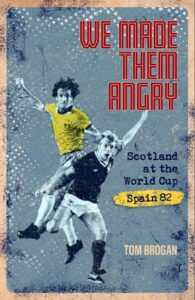
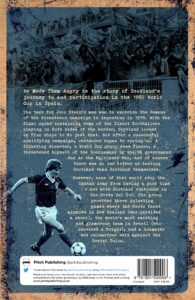

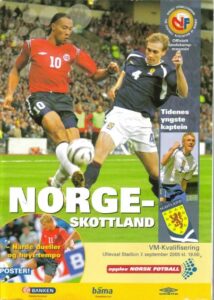
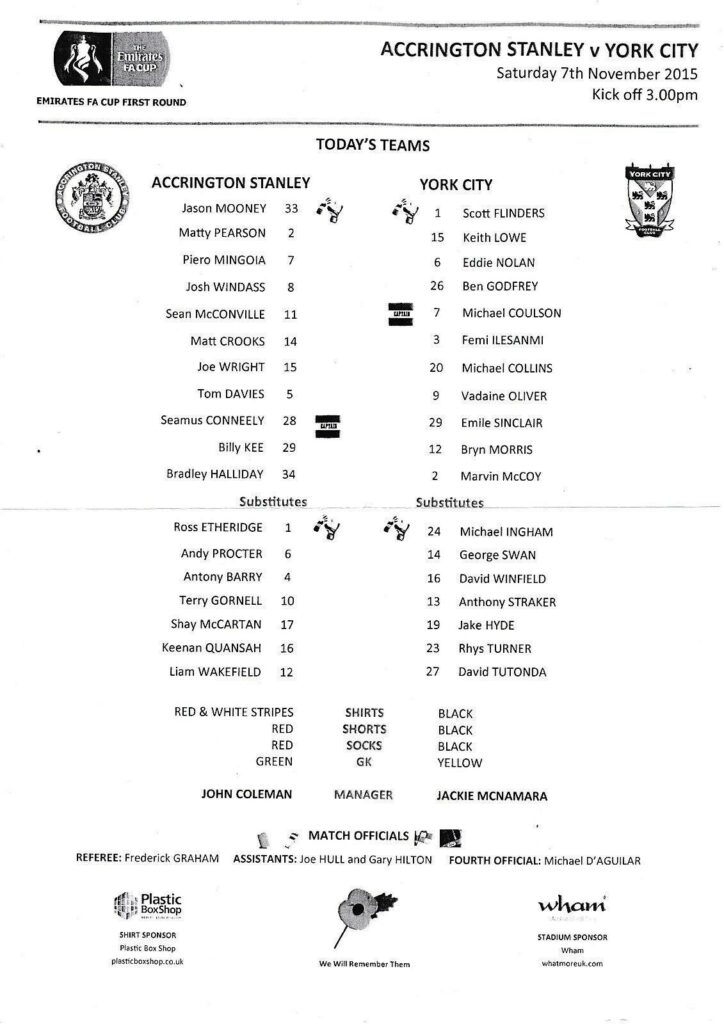
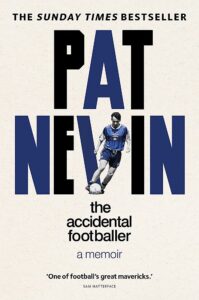 Depending on your age and interests, Pat Nevin is either an ex-Scottish International footballer and Chelsea legend, a DJ much influenced by the indie music scene or a respected media journalist and writer. One man, many facets and with a story to tell. Much like the release of Arsene Wenger’s autobiography, My Life in Red and White, Pat Nevin’s book was also keenly anticipated by many in the sporting world and beyond. And like the ex-Arsenal manager’s offering, Pat Nevin’s The Accidental Footballer is a book that has a sophistication, insight, depth and humour that is not always associated with the genre of football writing.
Depending on your age and interests, Pat Nevin is either an ex-Scottish International footballer and Chelsea legend, a DJ much influenced by the indie music scene or a respected media journalist and writer. One man, many facets and with a story to tell. Much like the release of Arsene Wenger’s autobiography, My Life in Red and White, Pat Nevin’s book was also keenly anticipated by many in the sporting world and beyond. And like the ex-Arsenal manager’s offering, Pat Nevin’s The Accidental Footballer is a book that has a sophistication, insight, depth and humour that is not always associated with the genre of football writing.
 Group D: England (1) 1 – 0 (0) Czech Republic
Group D: England (1) 1 – 0 (0) Czech Republic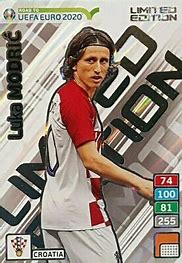 Group D: Scotland (1) 1 – 3 (1) Croatia
Group D: Scotland (1) 1 – 3 (1) Croatia Group B: Russia (0) 1 – 4 (1) Denmark
Group B: Russia (0) 1 – 4 (1) Denmark Group B: Finland (0) 0 – 2 (0) Belgium
Group B: Finland (0) 0 – 2 (0) Belgium Group C: North Macedonia (0) 0 – 3 (1) Netherlands
Group C: North Macedonia (0) 0 – 3 (1) Netherlands Group C: Ukraine (0) 0 – 1 (1) Austria
Group C: Ukraine (0) 0 – 1 (1) Austria Goal of the round: Nothing quite to match Patrik Schik’s first-round effort this time out, though there were a couple of well-worked goals, including both of Wales’ goals against Turkey, Ronaldo’s tap-in after a perfect counter-attack against Germany and Kevin de Bruyne’s beautiful set-up for Thorgan Hazard. De Bruyne went one better with his winning strike against the Danes, but arguably Ivan Perisic’s strike against Croatia was the pick of the bunch. And on the subject of goals, both Patrick Schick and Cristiano Ronaldo picked up another goal apiece, to take their tallies to three each, but there’s a clear frontrunner for the Golden Boot at the moment – own goals. There had only been nine own goals in Euros history prior to this tournament, with the most at one tournament being the three scored in 2016. However, five own goals – over half of the total previously scored – have already been registered in the first two rounds of this year’s edition – including the opening goal of the tournament – with Portugal’s Ruben Dias and Raphael Guerreiro having the dubious honour of scoring two own goals in a single match for the first time in the tournament’s history. On a more positive note, Ronaldo’s third goal of the campaign saw him increase his Euros goals tally to 12 and edge just two away from Ali Daei’s international record, whilst this was also his 19th goal at World Cup and Euro Championships, equalling Miroslav Klose’s record. With a tricky match against France to close their group-stage account and keep their Euros ambitions alive, could Wednesday’s encounter be Ronaldo’s swansong at this tournament?
Goal of the round: Nothing quite to match Patrik Schik’s first-round effort this time out, though there were a couple of well-worked goals, including both of Wales’ goals against Turkey, Ronaldo’s tap-in after a perfect counter-attack against Germany and Kevin de Bruyne’s beautiful set-up for Thorgan Hazard. De Bruyne went one better with his winning strike against the Danes, but arguably Ivan Perisic’s strike against Croatia was the pick of the bunch. And on the subject of goals, both Patrick Schick and Cristiano Ronaldo picked up another goal apiece, to take their tallies to three each, but there’s a clear frontrunner for the Golden Boot at the moment – own goals. There had only been nine own goals in Euros history prior to this tournament, with the most at one tournament being the three scored in 2016. However, five own goals – over half of the total previously scored – have already been registered in the first two rounds of this year’s edition – including the opening goal of the tournament – with Portugal’s Ruben Dias and Raphael Guerreiro having the dubious honour of scoring two own goals in a single match for the first time in the tournament’s history. On a more positive note, Ronaldo’s third goal of the campaign saw him increase his Euros goals tally to 12 and edge just two away from Ali Daei’s international record, whilst this was also his 19th goal at World Cup and Euro Championships, equalling Miroslav Klose’s record. With a tricky match against France to close their group-stage account and keep their Euros ambitions alive, could Wednesday’s encounter be Ronaldo’s swansong at this tournament?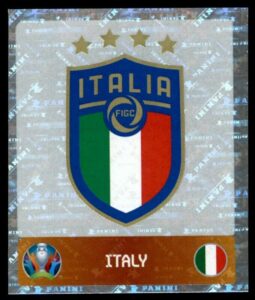 Standout team performance: There were a few standout performances across the round, not least from two of the three home nations, with Wales tapping back into the spirit of 2016 to see them earn a deserved victory against Turkey and all-but ensure qualification to the knockout round, whilst Scotland stepped up against the Auld Enemy to thwart England’s progress. After a dire start in Munich against France, Germany reminded everyone as to why they’re the most successful team in Euros history, with an impressive victory over Portugal, while both Belgium and Netherlands maintained their 100% start and eased into the Round of 16. However, my shout for team performance goes to Italy, who eased to another 3-0 win, becoming only the second team in the tournament’s history to begin the campaign with consecutive wins with margins of more than 3 goals. Despite not being on many people’s radars pre-tournament, Italy have in fact been on a very decent run, which has now seen them register 10 consecutive wins, and all of them without conceding a goal. They are 29 matches unbeaten, just one short of their record 30 matches between November 1935 and July 1939, and have scored some 80 goals. Defensive solidity is still at their core but they’ve added the deadly combination of goals – a team to watch surely.
Standout team performance: There were a few standout performances across the round, not least from two of the three home nations, with Wales tapping back into the spirit of 2016 to see them earn a deserved victory against Turkey and all-but ensure qualification to the knockout round, whilst Scotland stepped up against the Auld Enemy to thwart England’s progress. After a dire start in Munich against France, Germany reminded everyone as to why they’re the most successful team in Euros history, with an impressive victory over Portugal, while both Belgium and Netherlands maintained their 100% start and eased into the Round of 16. However, my shout for team performance goes to Italy, who eased to another 3-0 win, becoming only the second team in the tournament’s history to begin the campaign with consecutive wins with margins of more than 3 goals. Despite not being on many people’s radars pre-tournament, Italy have in fact been on a very decent run, which has now seen them register 10 consecutive wins, and all of them without conceding a goal. They are 29 matches unbeaten, just one short of their record 30 matches between November 1935 and July 1939, and have scored some 80 goals. Defensive solidity is still at their core but they’ve added the deadly combination of goals – a team to watch surely. Standout player performance: If ever a substitute changed a team’s fortunes, it was surely Kevin de Bruyne, who was introduced in the second-half when the Red Devils were 1-0 against Denmark and promptly cancelled out the deficit by calmly setting up Hazard. And just quarter of an hour later, he turned the game on its head with a beautifully struck shot to ease Belgium into the lead and through to the Round of 16. He exemplified the term ‘game-changer’. However, for me, Leonardo Spinazzola has been a revelation. A right-footed wing-back, he’s played the role to perfection on the front foot, always offering an outlet down the wing and often the furthest forward in the attack. Admittedly, he hasn’t been tested particularly defensively, but, as they say, attack is the best form of defence, and they don’t come more attacking in the wing-back role than Leonardo Spinazzola. Now 28, Spinazzola may just be at his peak, although if Chiellini and Bonucci are anything to go by, he should have another good 6–8 years yet.
Standout player performance: If ever a substitute changed a team’s fortunes, it was surely Kevin de Bruyne, who was introduced in the second-half when the Red Devils were 1-0 against Denmark and promptly cancelled out the deficit by calmly setting up Hazard. And just quarter of an hour later, he turned the game on its head with a beautifully struck shot to ease Belgium into the lead and through to the Round of 16. He exemplified the term ‘game-changer’. However, for me, Leonardo Spinazzola has been a revelation. A right-footed wing-back, he’s played the role to perfection on the front foot, always offering an outlet down the wing and often the furthest forward in the attack. Admittedly, he hasn’t been tested particularly defensively, but, as they say, attack is the best form of defence, and they don’t come more attacking in the wing-back role than Leonardo Spinazzola. Now 28, Spinazzola may just be at his peak, although if Chiellini and Bonucci are anything to go by, he should have another good 6–8 years yet. Newcomers: I can’t mention newcomers without mentioning Billy Gilmour. Named ‘Star of the Match’ (a moniker I’m not even going to go into right now) against England, Gilmour once again proved his quality and maturity as he has done every time he’s stepped onto the pitch in the last twelve months. Despite being only 20, his schooling with the likes of Kante and Jorginho clearly shows, and his battle against team-mate Mason Mount was one of the highlights of the England-Scotland match. For me, though, Denzel Dumfries of the Netherlands, who has been named ‘Star of the Match’ (I know, I know) in both of the Oranje’s matches, has been mightily impressive, starring at right-back but scoring in both of the opening fixtures – and in scoring in his first two Euros games, he matched the feat that has only ever been achieved by one other player – Ruud van Nistelrooy – and again, I reiterate, he’s a right-back. Aged just 22, he’s already making waves, and I’m sure the Premier League scouts are out in force to prise him away from PSV. And when it comes to youngsters, Jude Bellingham’s reign as the youngest ever player at the Euros was over almost as soon as it began with Poland’s Kacper Kozlowski taking the record when he was introduced as a sub against Spain, aged 17 years and 246 days. Anyone feeling old yet?
Newcomers: I can’t mention newcomers without mentioning Billy Gilmour. Named ‘Star of the Match’ (a moniker I’m not even going to go into right now) against England, Gilmour once again proved his quality and maturity as he has done every time he’s stepped onto the pitch in the last twelve months. Despite being only 20, his schooling with the likes of Kante and Jorginho clearly shows, and his battle against team-mate Mason Mount was one of the highlights of the England-Scotland match. For me, though, Denzel Dumfries of the Netherlands, who has been named ‘Star of the Match’ (I know, I know) in both of the Oranje’s matches, has been mightily impressive, starring at right-back but scoring in both of the opening fixtures – and in scoring in his first two Euros games, he matched the feat that has only ever been achieved by one other player – Ruud van Nistelrooy – and again, I reiterate, he’s a right-back. Aged just 22, he’s already making waves, and I’m sure the Premier League scouts are out in force to prise him away from PSV. And when it comes to youngsters, Jude Bellingham’s reign as the youngest ever player at the Euros was over almost as soon as it began with Poland’s Kacper Kozlowski taking the record when he was introduced as a sub against Spain, aged 17 years and 246 days. Anyone feeling old yet?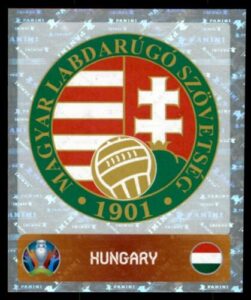

 England: The concerns going into the tournament for England were all about defence and how on earth the Three Lions would cope without Harry Maguire. Blessed with perhaps the greatest array of attacking talent in a generation, the only questions about England’s front line was how to fit them all in. However, two games down and that has totally switched. The defence, marshalled it has to be said by Harry Maguire’s replacement Tyrone Mings, has kept two clean sheets and been largely untroubled, whilst a four-pronged attack has registered just one goal and didn’t record a single shot on target in the first half against Scotland. It felt as if this match brought England crashing back down to earth, against a Scotland side who were resolute and determined but who rank some forty places below their Auld Enemy. In many ways, it was a sort of throwback, an old-fashioned tussle of yore, with a few more multicoloured boots than in the past. It wasn’t particularly pretty, the good old Blighty weather didn’t let the side down, and the first twenty-five minutes was more about the foul count than the pass count, with some proper duels between Mings and Stones and Adams and Dykes, and Mason Mount and Billy Gilmour who seemed to forget they’re Chelsea teammates. Mount and Rice were arguably the best of a disappointing bunch, with another solid display by Mings and Jordan Pickford putting on a good performance. With one match to go, England’s fate will be decided against the Czech Republic and whilst it’s not all doom and gloom, there is definitely need for improvement, and maybe it’s time for a change to personnel and shape.
England: The concerns going into the tournament for England were all about defence and how on earth the Three Lions would cope without Harry Maguire. Blessed with perhaps the greatest array of attacking talent in a generation, the only questions about England’s front line was how to fit them all in. However, two games down and that has totally switched. The defence, marshalled it has to be said by Harry Maguire’s replacement Tyrone Mings, has kept two clean sheets and been largely untroubled, whilst a four-pronged attack has registered just one goal and didn’t record a single shot on target in the first half against Scotland. It felt as if this match brought England crashing back down to earth, against a Scotland side who were resolute and determined but who rank some forty places below their Auld Enemy. In many ways, it was a sort of throwback, an old-fashioned tussle of yore, with a few more multicoloured boots than in the past. It wasn’t particularly pretty, the good old Blighty weather didn’t let the side down, and the first twenty-five minutes was more about the foul count than the pass count, with some proper duels between Mings and Stones and Adams and Dykes, and Mason Mount and Billy Gilmour who seemed to forget they’re Chelsea teammates. Mount and Rice were arguably the best of a disappointing bunch, with another solid display by Mings and Jordan Pickford putting on a good performance. With one match to go, England’s fate will be decided against the Czech Republic and whilst it’s not all doom and gloom, there is definitely need for improvement, and maybe it’s time for a change to personnel and shape.